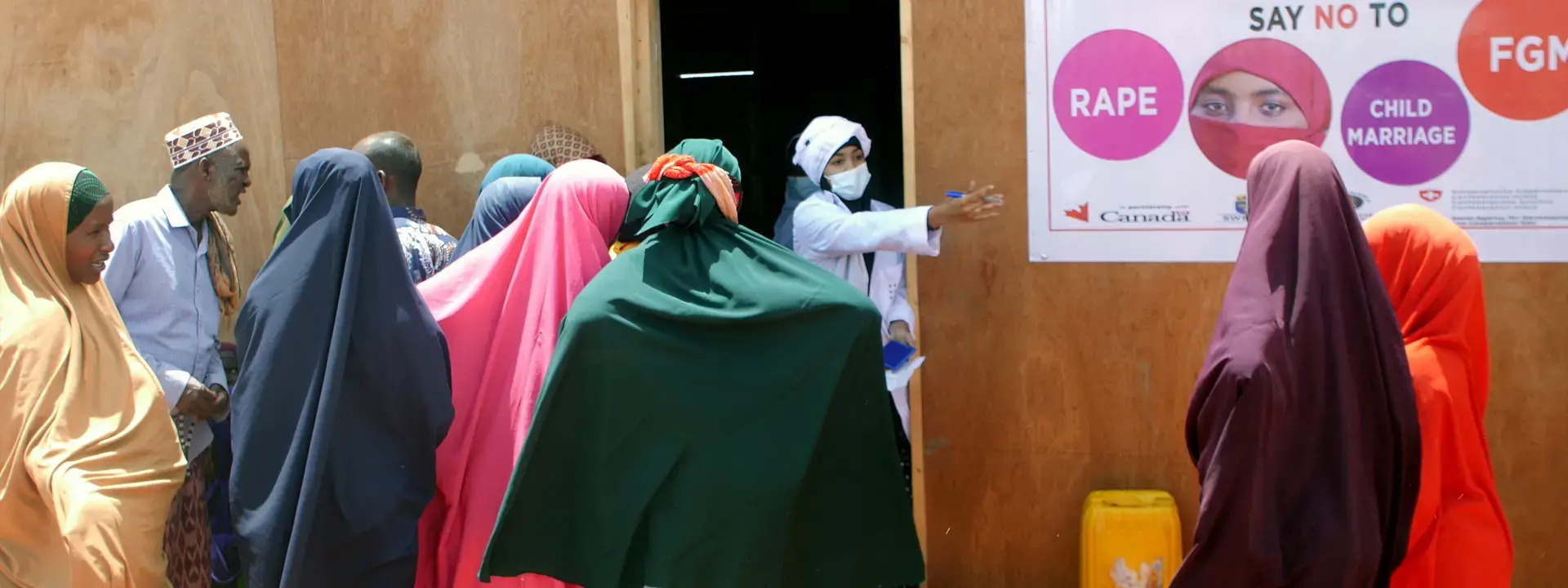Female genital mutilation involves altering or injuring the female genitalia for non-medical reasons. Internationally recognized as a human rights violation, it is estimated that some 230 million girls and women globally have undergone some form of female genital mutilation. Although the practice is declining in the majority of countries where it is prevalent, most of these countries are also experiencing a high rate of population growth – meaning that the number of girls who undergo female genital mutilation will continue to grow if the practice continues at current levels. UNFPA estimates 68 million girls are at risk of undergoing the practice between 2015 and 2030.
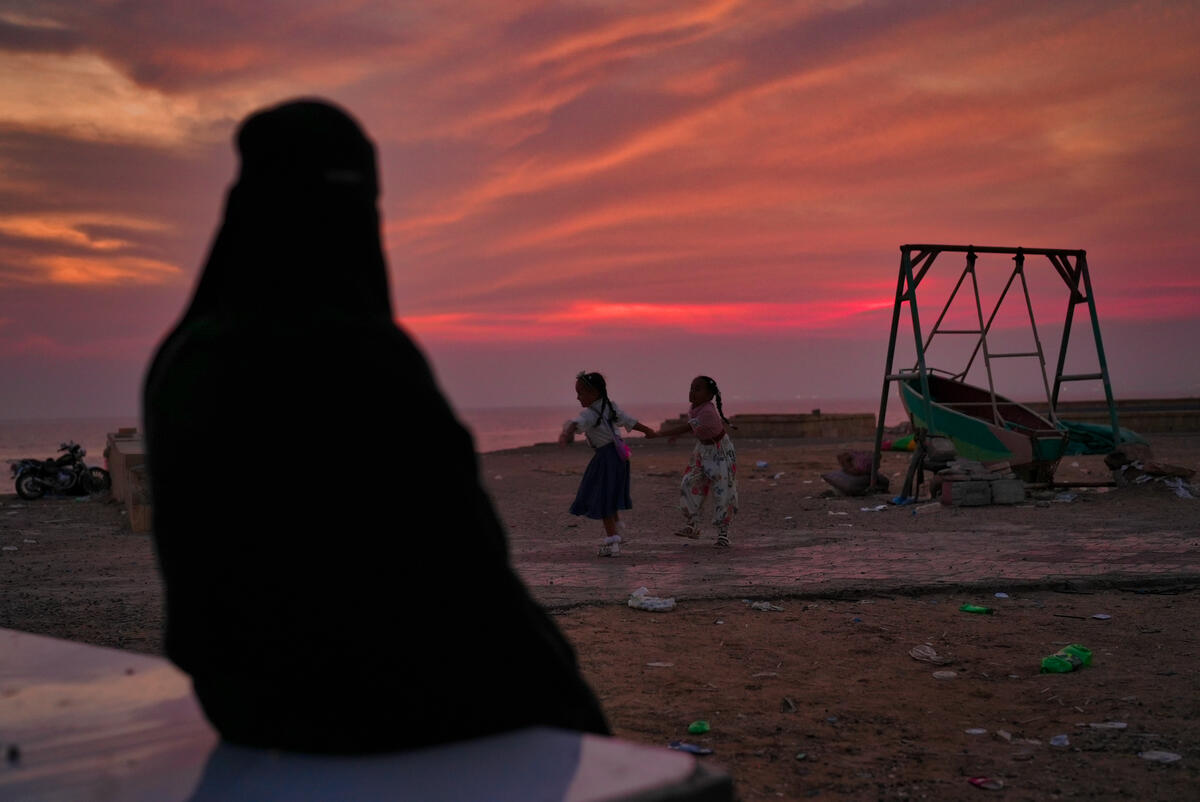
In the Arab region around 50 million girls have already suffered female-genital mutilation, and the region accounts for around a quarter of all global cases. Protecting girls will take a significant push to eliminate this harmful, often deadly, practice. Coordinated and systematic efforts are needed, including engaging with whole communities and focusing on human rights and gender equality. Additionally, the sexual and reproductive health needs of women and girls who are subjected to the practice and its consequences must be urgently addressed.
What is female genital mutilation?
Female genital mutilation refers to all procedures involving partial or total removal of the external female genitalia, or other injury to the female genital organs for non-medical reasons. It is a deeply entrenched – and deeply damaging – social and cultural norm in many places.
The practice can cause short- and long-term health complications including chronic pain, infections,, anxiety and depression, birth complications, infertility and, in the worst cases, death. It is internationally recognized as an extreme violation of the rights of women and girls.
In 2012, the United Nations General Assembly unanimously adopted the first-ever resolution against female genital mutilation, calling for intensified global efforts to eliminate the practice. In 2015, female genital mutilation was included in the Sustainable Development Goals under Target 5.3, which calls for the elimination of all harmful practices.
Yet it remains widespread. In 2023, UNFPA estimated that nearly 4.3 million girls were at risk of female genital mutilation that year. Research also suggests that, if female genital mutilation continues at current rates, an estimated 68 million girls would be subjected to this practice between 2015 and 2030 in the 25 countries where it is routinely practised and where relevant data are available. But from 2020 through 2022, COVID-19 compounded the vulnerability of girls and women at risk of female genital mutilation. The pandemic further entrenched gender inequalities, economic disparities and health risks faced by women and girls and disrupted programmes to prevent female genital mutilation and other harmful practices. UNFPA estimates that, due to COVID-19, two million more cases of female genital mutilation could take place over the next decade if action is not scaled up.
Why is female genital mutilation still practiced?
In every society where it is practiced, female genital mutilation is a deeply entrenched social norm. In some societies, for example, it is considered a rite of passage. In others, it is seen as a prerequisite for marriage.
Because female genital mutilation may be considered an important part of a culture or identity, it can be difficult for families to decide against having their daughters subjected to it. People who reject the practice may face condemnation or ostracism, and their daughters are often considered ineligible for marriage. As a result, even parents who do not want their daughters to undergo female genital mutilation may feel compelled to participate.
Encouraging abandonment
Collective abandonment, in which a whole community chooses to no longer engage in female genital mutilation, is an effective way to end the practice. It ensures that no girl or family will be disadvantaged by the decision. Many experts hold that female genital mutilation will only end through collective abandonment.
The decision to collectively abandon the practice requires a process in which communities are encouraged to discuss and evaluate the traditions and beliefs that drive the practice, positive and negative effects of the practice and then discuss, reflect and reach consensus on abandonment. Issues on health and human rights are raised in these dialogues, and local and grassroots organizations should play an important role in raising awareness and educating communities.
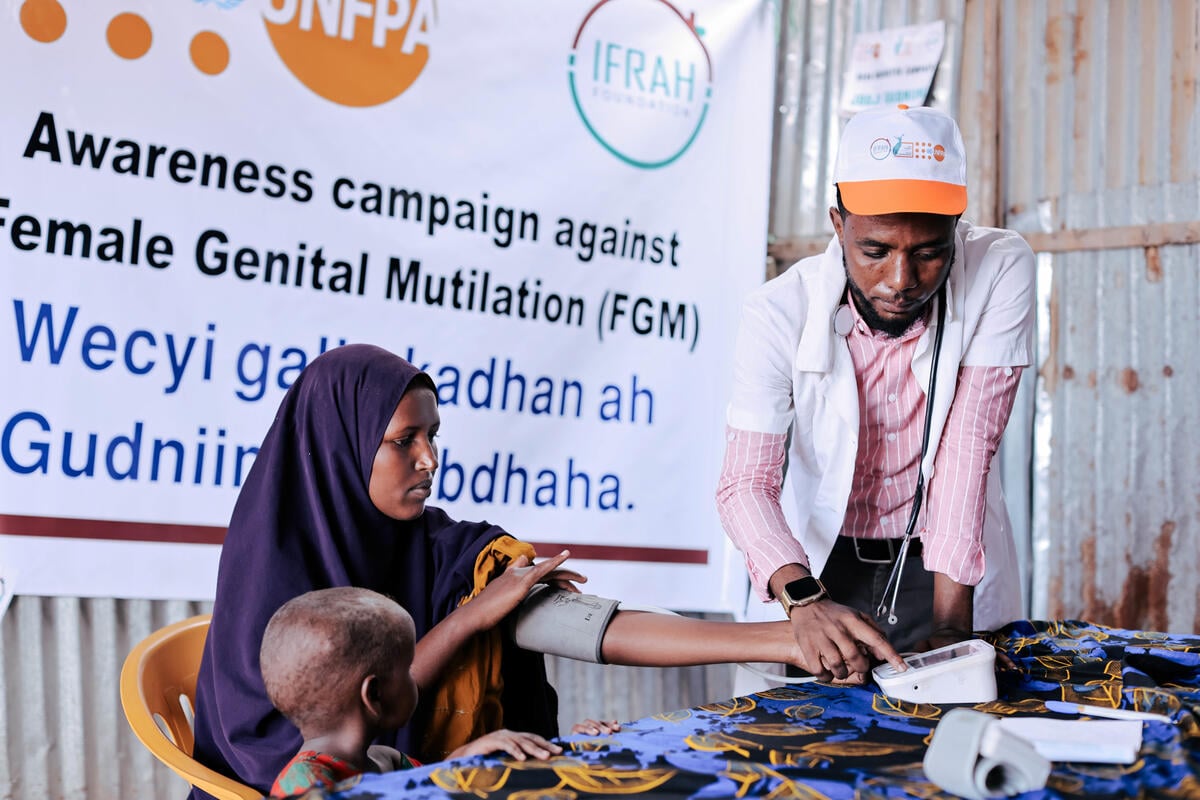
When communities choose to abandon female genital mutilation, they often participate in a collective public declaration to keep their girls unharmed or as perfect as they are born, such as signing and circulating a public statement or hosting festivities to celebrate the decision. Neighbouring communities are often invited to these events so they can see the successful process of abandonment, helping to build momentum for collective abandonment elsewhere
Medicalization of female genital mutilation
According to recent UNFPA estimates, around one in four girls and women between the ages of 15 and 49 have been subjected to female genital mutilation – amounting to 52 million people – by health workers. In some countries, this ratio can reach as high as three in four girls.
Female genital mutilation can never be “safe” and there is no medical justification for the practice. Even when performed in a sterile environment by a health worker, there can be serious consequences immediately and later in life. Medicalized female genital mutilation offers those subjected to it a false sense of safety. Health workers who perform it are violating girls’ and women’s rights to life, to physical integrity and to health as well as violating their professional code of conduct to "do no harm".
UNFPA works with the health sector and health workers, including midwives, to resist social pressure to perform female genital mutilation and to become advocates for prevention and protection in the communities they serve.
Female genital mutilation in the Arab region
Female genital mutilation is highly prevalent in a number of Arab countries. In Somalia, nearly 99 percent of girls between 5-11-years old report being cut. In Sudan, where the rates are rising, nearly three-quarters of girls are affected. In Yemen, 19% of women and girls aged 15-49 have been subjected to the practice. Many women and girls suffer through the harmful practice at the hands of a health worker. The increasing medicalization of FGM is a worrying trend in the Arab region and is particularly common in Egypt and Sudan.
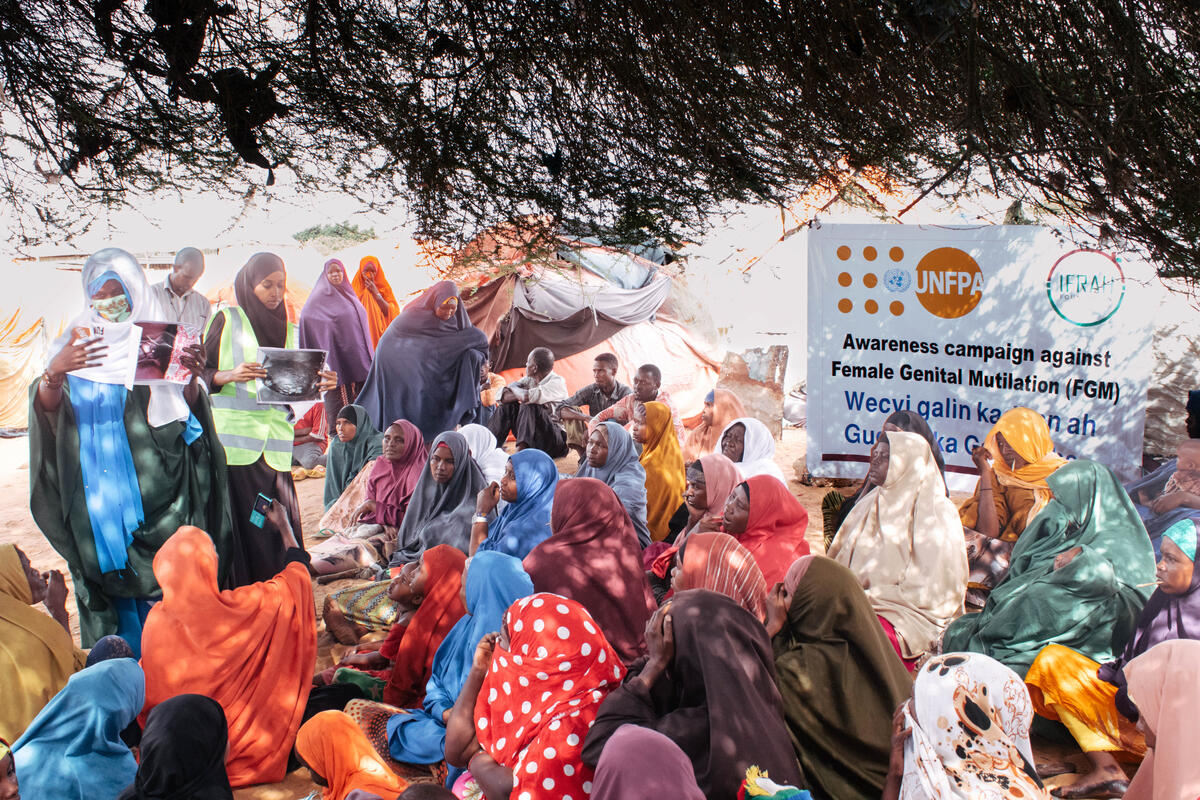
FGM is a deeply entrenched practice in the communities in which it is common. It is a deeply rooted social norm that is often falsely justified with health and religious arguments. FGM is often not considered a priority issue for policymakers in the affected countries, and even less so in times of conflict or other humanitarian crises. Situations of political and economic instability further delay the implementation of activities that focus on anti-FGM policies and laws. Some religious leaders make the case that FGM is a religiously required procedure, yet many others openly advocate for the total abandonment of FGM, citing religious texts to demonstrate that FGM is a cultural rather than a religious requirement.
At the Nairobi Summit on ICPD25 in 2019, representatives from a network of faith-based organizations from Egypt, Sudan, Djibouti, Somalia and Yemen committed to support their governments in eliminating FGM, stating that they consider FGM to be an act of violence against women and girls with no reference nor association with religious texts.
What UNFPA is doing
The UNFPA-UNICEF Joint Programme on the Elimination of Female Genital Mutilation is the largest global programme to accelerate the elimination of female genital mutilation. The Joint Programme supports holistic and integrated approaches and interventions at the global, regional, and national levels with the aim of establishing policy and legal frameworks, encouraging communities to abandon the harmful practice, providing related services, and supporting data and evidence generation to better inform advocacy and programme initiatives.
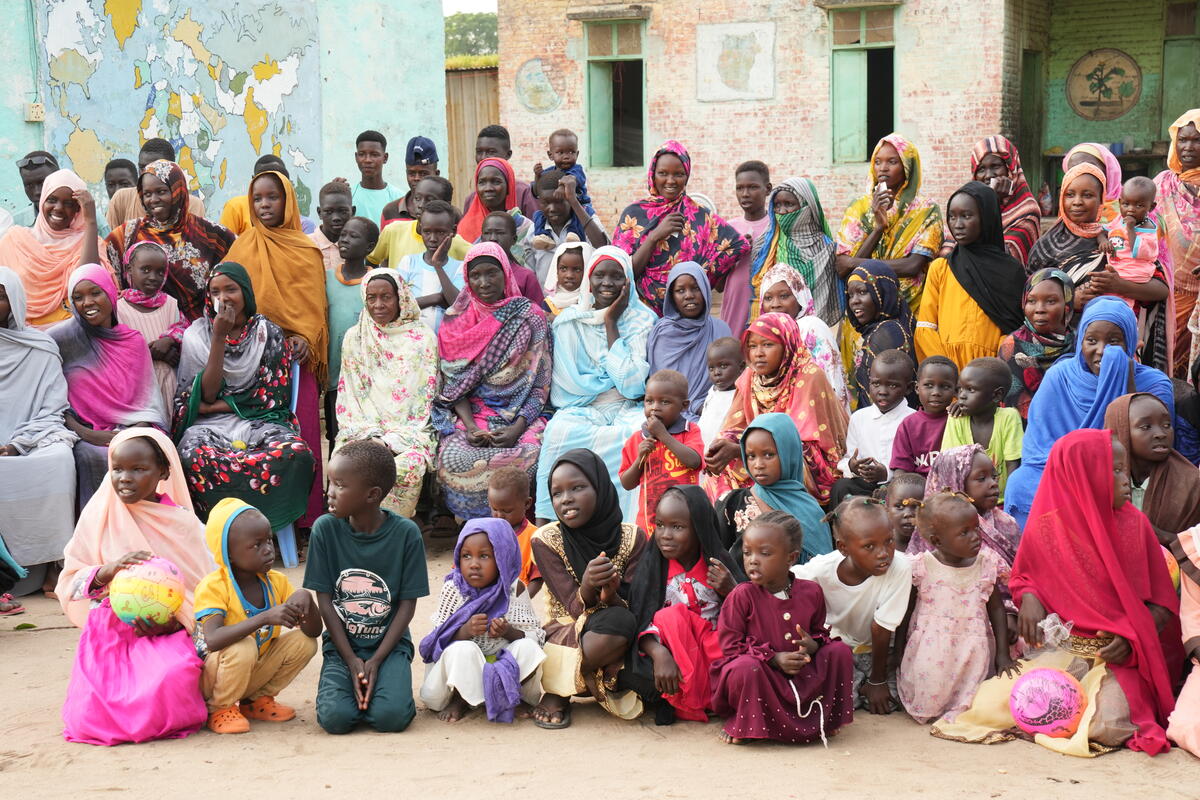
The programme has been working in partnership with governments, civil society, communities and development partners at different levels.The Joint Programme provides direct support to 17 countries (Burkina Faso, Djibouti, Egypt, Eritrea, Ethiopia, Gambia, Guinea, Guinea Bissau, Kenya, Mali, Mauritania, Nigeria, Senegal, Somalia, Sudan, Uganda, and Yemen). It also has various initiatives and forums to share technical knowledge and expertise to other countries and organizations.
UNFPA has also been undertaking various analyses that include estimating the cost and the new investments that must be made to achieve the elimination of the practice, returns from investing in ending the practice, estimating the number of girls at risk of undergoing the practice by 2030, and other related studies.
Updated 10 June 2024

